Shenhan Zhu
Seedance 1.5 pro: A Native Audio-Visual Joint Generation Foundation Model
Dec 23, 2025Abstract:Recent strides in video generation have paved the way for unified audio-visual generation. In this work, we present Seedance 1.5 pro, a foundational model engineered specifically for native, joint audio-video generation. Leveraging a dual-branch Diffusion Transformer architecture, the model integrates a cross-modal joint module with a specialized multi-stage data pipeline, achieving exceptional audio-visual synchronization and superior generation quality. To ensure practical utility, we implement meticulous post-training optimizations, including Supervised Fine-Tuning (SFT) on high-quality datasets and Reinforcement Learning from Human Feedback (RLHF) with multi-dimensional reward models. Furthermore, we introduce an acceleration framework that boosts inference speed by over 10X. Seedance 1.5 pro distinguishes itself through precise multilingual and dialect lip-syncing, dynamic cinematic camera control, and enhanced narrative coherence, positioning it as a robust engine for professional-grade content creation. Seedance 1.5 pro is now accessible on Volcano Engine at https://console.volcengine.com/ark/region:ark+cn-beijing/experience/vision?type=GenVideo.
Galvatron: An Automatic Distributed System for Efficient Foundation Model Training
Apr 30, 2025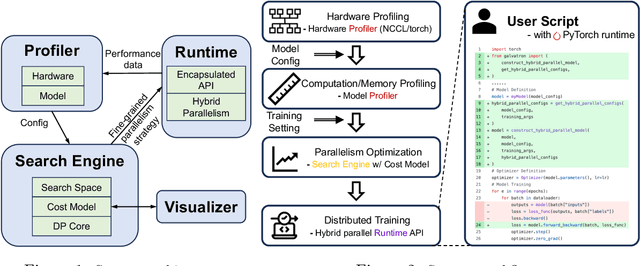
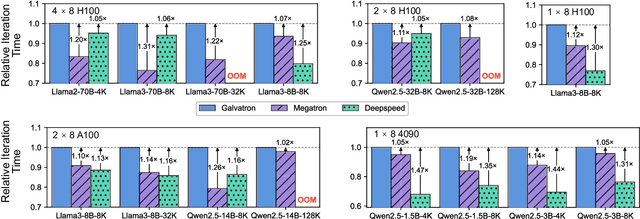
Abstract:Galvatron is a distributed system for efficiently training large-scale Foundation Models. It overcomes the complexities of selecting optimal parallelism strategies by automatically identifying the most efficient hybrid strategy, incorporating data, tensor, pipeline, sharded data, and sequence parallelism, along with recomputation. The system's architecture includes a profiler for hardware and model analysis, a search engine for strategy optimization using decision trees and dynamic programming, and a runtime for executing these strategies efficiently. Benchmarking on various clusters demonstrates Galvatron's superior throughput compared to existing frameworks. This open-source system offers user-friendly interfaces and comprehensive documentation, making complex distributed training accessible and efficient. The source code of Galvatron is available at https://github.com/PKU-DAIR/Hetu-Galvatron.
Data-Centric and Heterogeneity-Adaptive Sequence Parallelism for Efficient LLM Training
Dec 02, 2024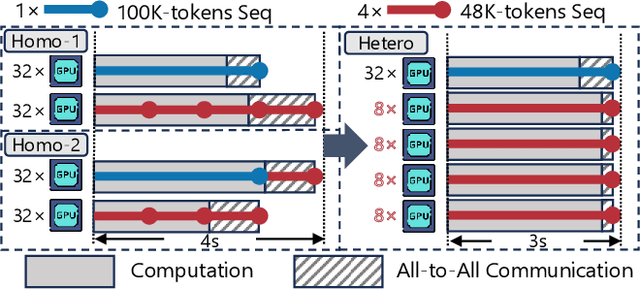
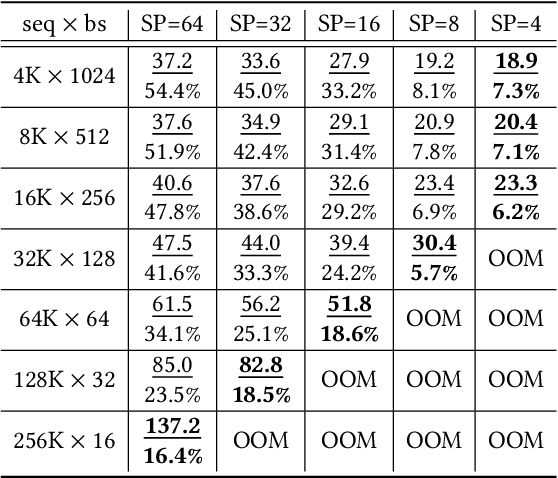
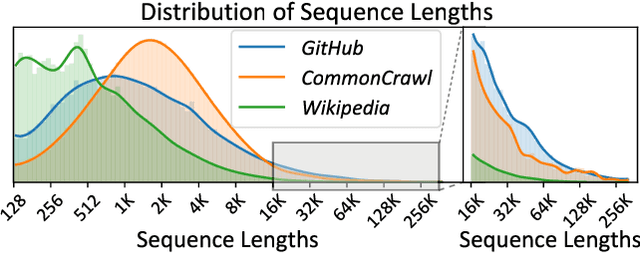
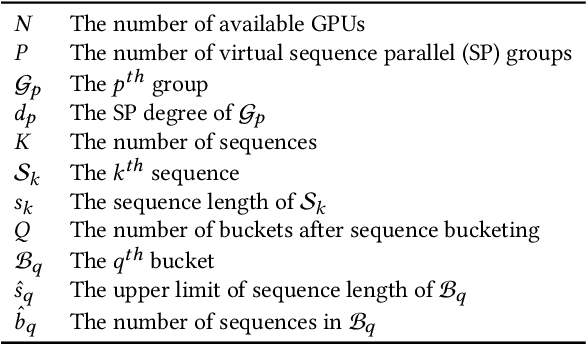
Abstract:Extending the context length (i.e., the maximum supported sequence length) of LLMs is of paramount significance. To facilitate long context training of LLMs, sequence parallelism has emerged as an essential technique, which scatters each input sequence across multiple devices and necessitates communication to process the sequence. In essence, existing sequence parallelism methods assume homogeneous sequence lengths (i.e., all input sequences are equal in length) and therefore leverages a single, static scattering strategy for all input sequences. However, in reality, the sequence lengths in LLM training corpora exhibit substantial variability, often following a long-tail distribution, which leads to workload heterogeneity. In this paper, we show that employing a single, static strategy results in inefficiency and resource under-utilization, highlighting the need for adaptive approaches to handle the heterogeneous workloads across sequences. To address this, we propose a heterogeneity-adaptive sequence parallelism method. For each training step, our approach captures the variability in sequence lengths and assigns the optimal combination of scattering strategies based on workload characteristics. We model this problem as a linear programming optimization and design an efficient and effective solver to find the optimal solution. Furthermore, we implement our method in a high-performance system that supports adaptive parallelization in distributed LLM training. Experimental results demonstrate that our system outperforms state-of-the-art training frameworks by up to 1.98x.
Efficient Multi-Task Large Model Training via Data Heterogeneity-aware Model Management
Sep 05, 2024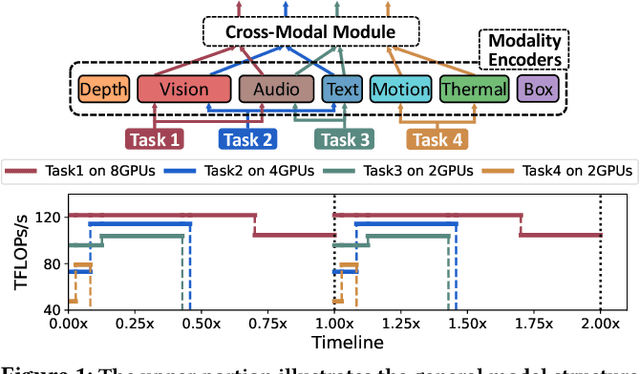
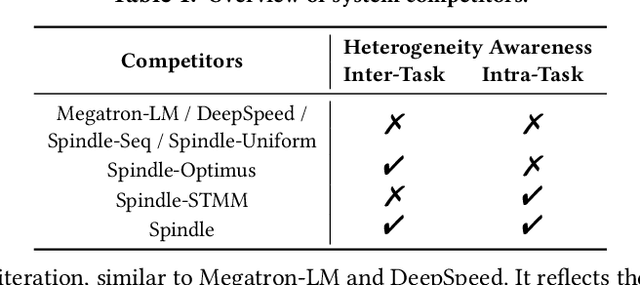
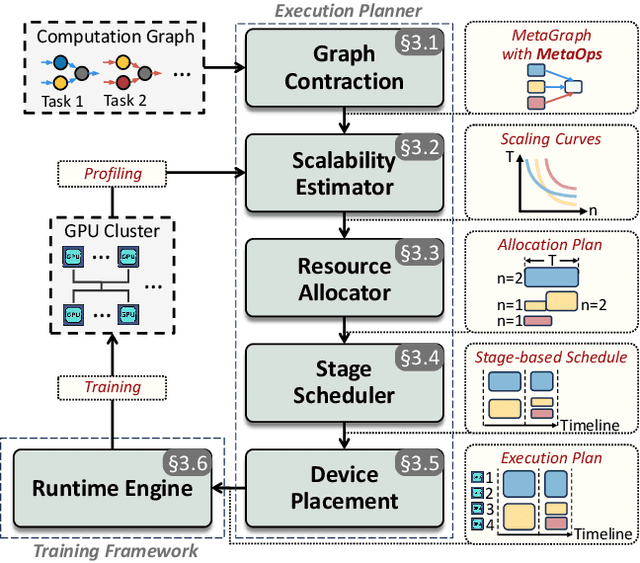
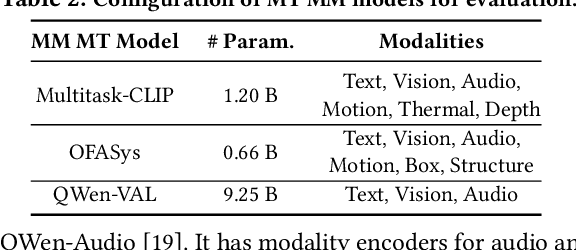
Abstract:Recent foundation models are capable of handling multiple machine learning (ML) tasks and multiple data modalities with the unified base model structure and several specialized model components. However, the development of such multi-task (MT) multi-modal (MM) models poses significant model management challenges to existing training systems. Due to the sophisticated model architecture and the heterogeneous workloads of different ML tasks and data modalities, training these models usually requires massive GPU resources and suffers from sub-optimal system efficiency. In this paper, we investigate how to achieve high-performance training of large-scale MT MM models through data heterogeneity-aware model management optimization. The key idea is to decompose the model execution into stages and address the joint optimization problem sequentially, including both heterogeneity-aware workload parallelization and dependency-driven execution scheduling. Based on this, we build a prototype system and evaluate it on various large MT MM models. Experiments demonstrate the superior performance and efficiency of our system, with speedup ratio up to 71% compared to state-of-the-art training systems.
 Add to Chrome
Add to Chrome Add to Firefox
Add to Firefox Add to Edge
Add to Edge